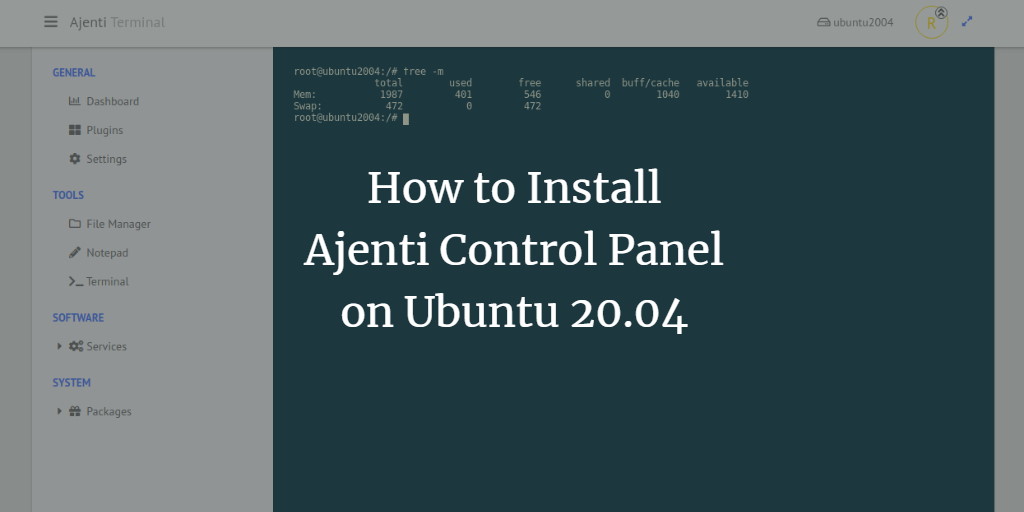If you’re managing a Linux server and are not fully comfortable with the command line, a control panel can greatly assist by providing a web-based interface for server management. Ajenti is a free, open-source, and lightweight control panel that simplifies Linux server management. Written in Python, it offers a responsive graphical interface and includes numerous plugins for managing emails, websites, domains, and more.
This guide will walk you through installing the Ajenti Control Panel on an Ubuntu 20.04 server.
Prerequisites
- A server running Ubuntu 20.04.
- Root password configured on your server.
Initial Setup
Start by updating your system to the latest version. Run the following commands:
apt-get update -y apt-get upgrade -y
After the updates are complete, reboot your system to apply the changes.
Installing Ajenti Control Panel
Since Ajenti is not included in the default Ubuntu repository, you must download its installation script from the official Ajenti website. Use this command:
curl -O https://raw.githubusercontent.com/ajenti/ajenti/master/scripts/install.sh
After downloading the script, initiate the installation with:
bash install.sh
Upon successful installation, you should see output similar to:
:: Installing initscript /usr/bin/systemctl Created symlink /etc/systemd/system/multi-user.target.wants/ajenti.service → /lib/systemd/system/ajenti.service. :: Complete Ajenti will be listening at HTTP port 8000 Log in with your root password or another OS user
Managing the Ajenti Service
You can manage the Ajenti service with the following systemctl commands:
systemctl start ajenti systemctl stop ajenti
To verify the service status, use:
systemctl status ajenti
The expected output resembles:
? ajenti.service - Ajenti panel
Loaded: loaded (/lib/systemd/system/ajenti.service; enabled; vendor preset: enabled)
Active: active (running) since Sat 2021-05-15 10:35:23 UTC; 32s ago
Process: 8767 ExecStart=/usr/bin/python3 /usr/local/bin/ajenti-panel -d (code=exited, status=0/SUCCESS)
Process: 8779 ExecStartPost=/bin/sleep 5 (code=exited, status=0/SUCCESS)
Main PID: 8780 (python3)
Tasks: 3 (limit: 2353)
Memory: 44.9M
CGroup: /system.slice/ajenti.service
??8780 /usr/bin/python3 /usr/local/bin/ajenti-panel -d
??8787 /usr/local/bin/ajenti-panel worker [restricted session]
May 15 10:35:18 ubuntu2004 systemd[1]: Starting Ajenti panel...
May 15 10:35:23 ubuntu2004 systemd[1]: Started Ajenti panel.
Ajenti operates on port 8000 by default, verified with:
ss -tunelp | grep 8000
Expected result looks like:
tcp LISTEN 0 10 0.0.0.0:8000 0.0.0.0:* users:(("/usr/local/bin/",pid=8787,fd=9),("python3",pid=8780,fd=9)) ino:30581 sk:8 <->
Accessing the Ajenti Web Interface
To access Ajenti, open a web browser and navigate to http://your-server-ip:8000. You’ll be directed to the login page:
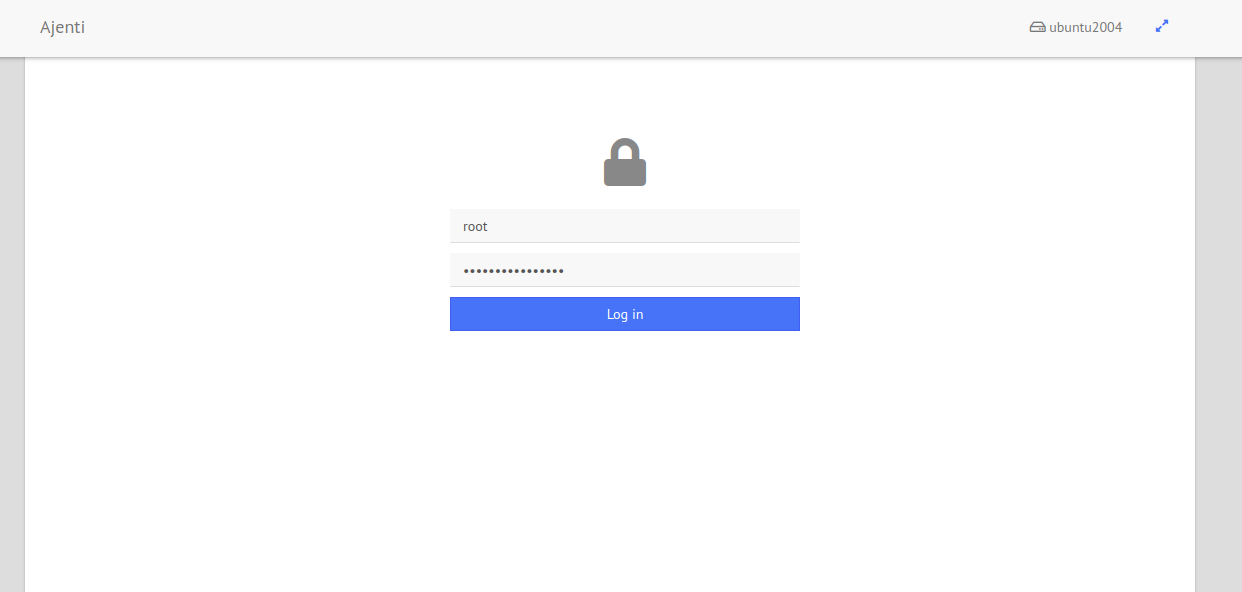
Log in with your root username and password to access the Ajenti dashboard:
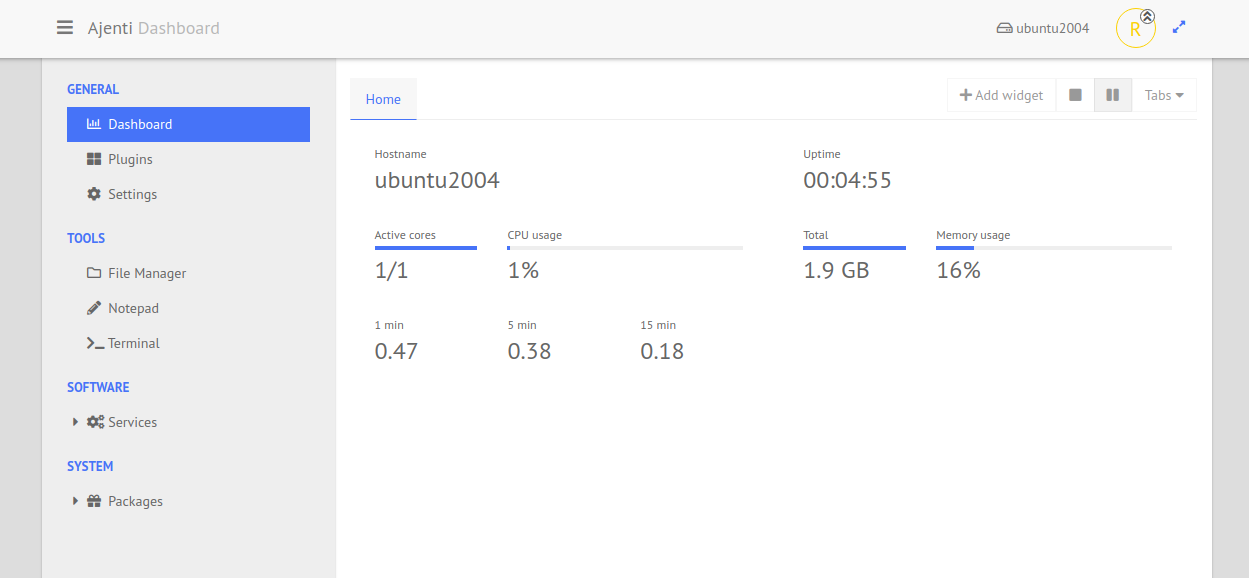
Exploring Ajenti Features
Under Plugins, view and install various plugins:
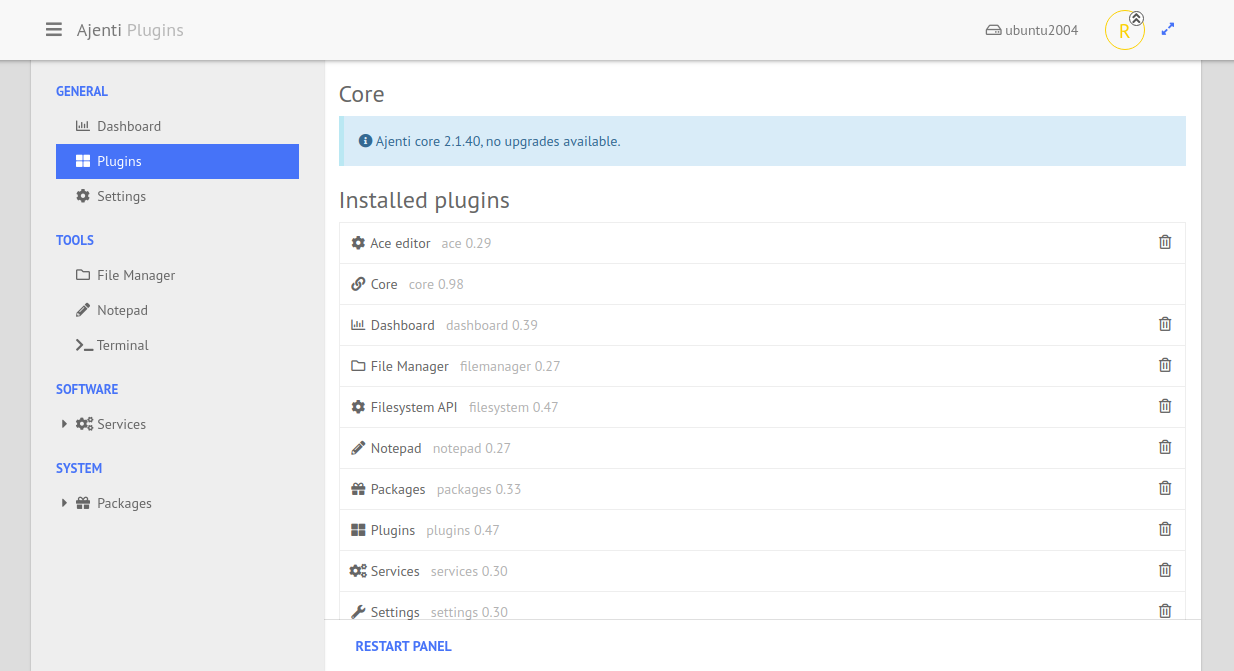
In File Manager, manage your system’s files and directories:
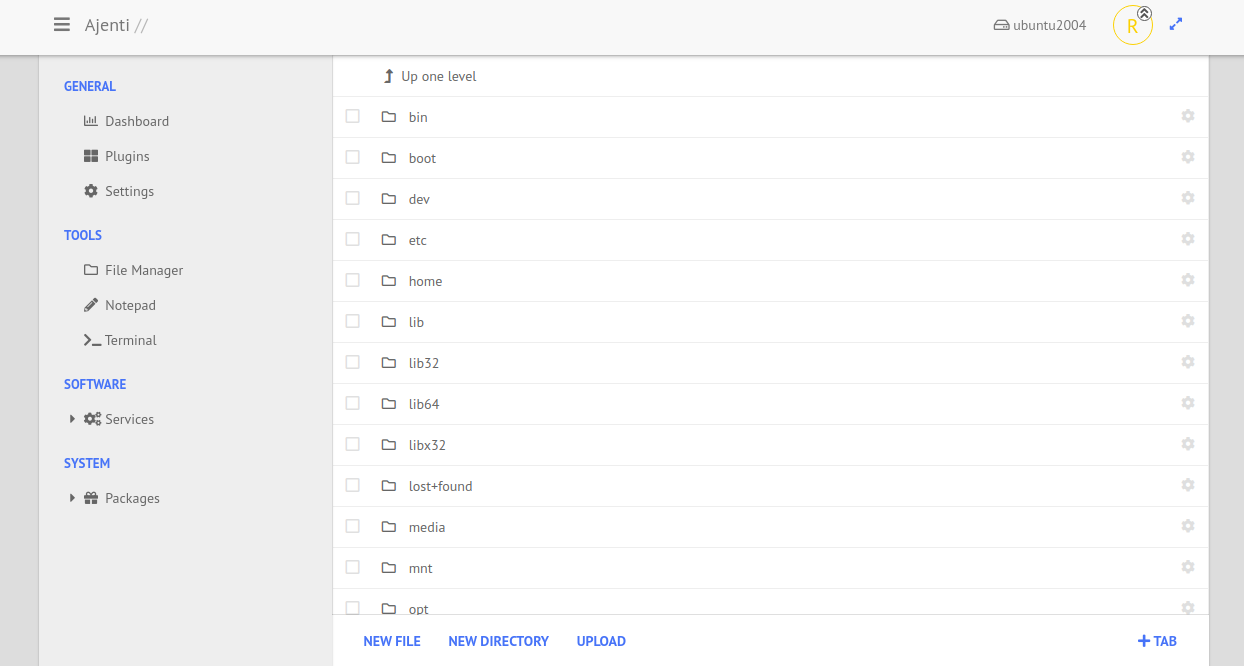
Under Services, control system services:
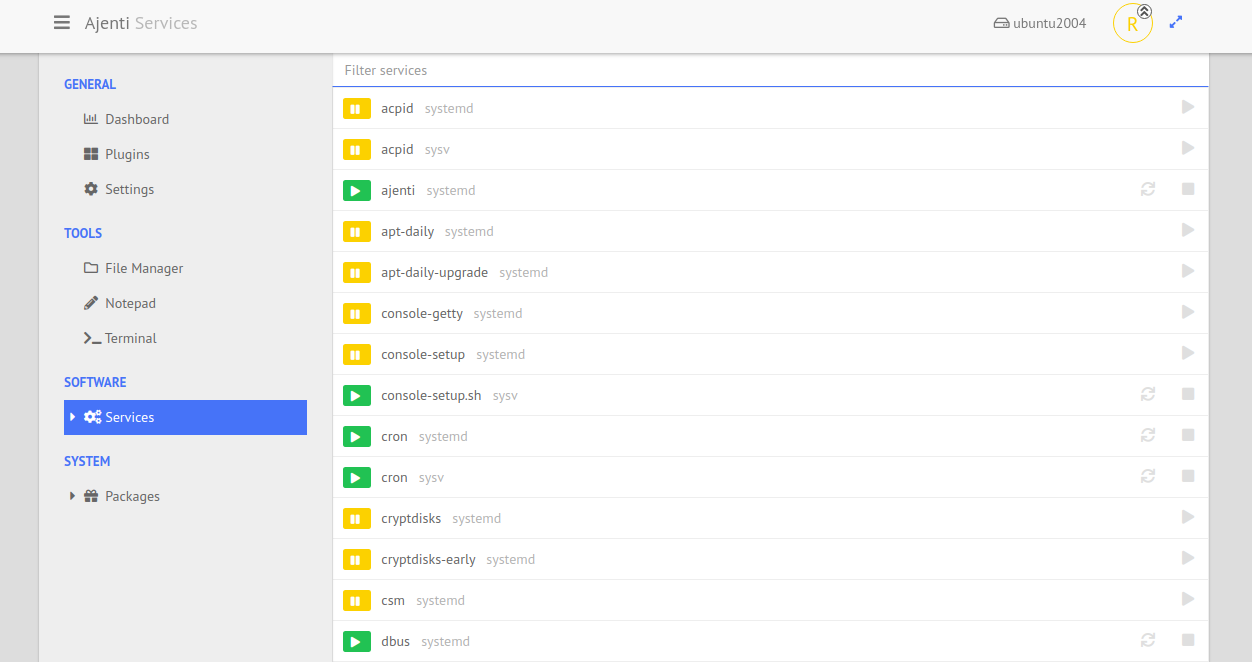
Access the Terminal to run commands directly on your Linux system:
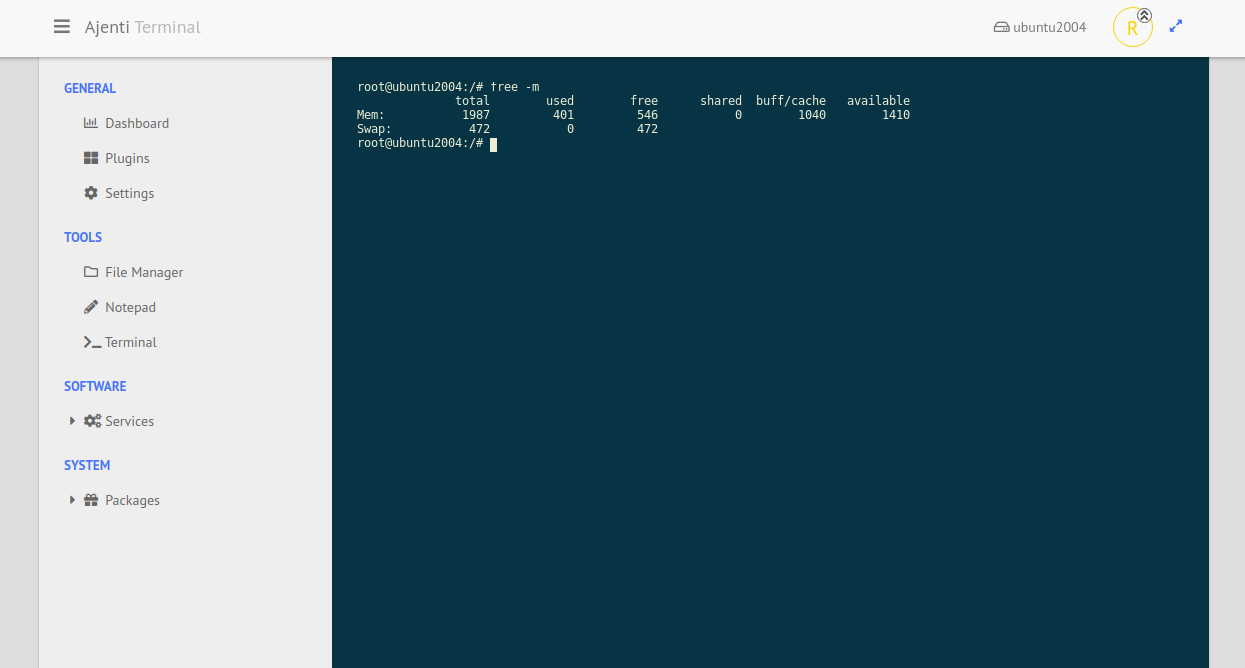
Via Packages => APT, manage system packages:
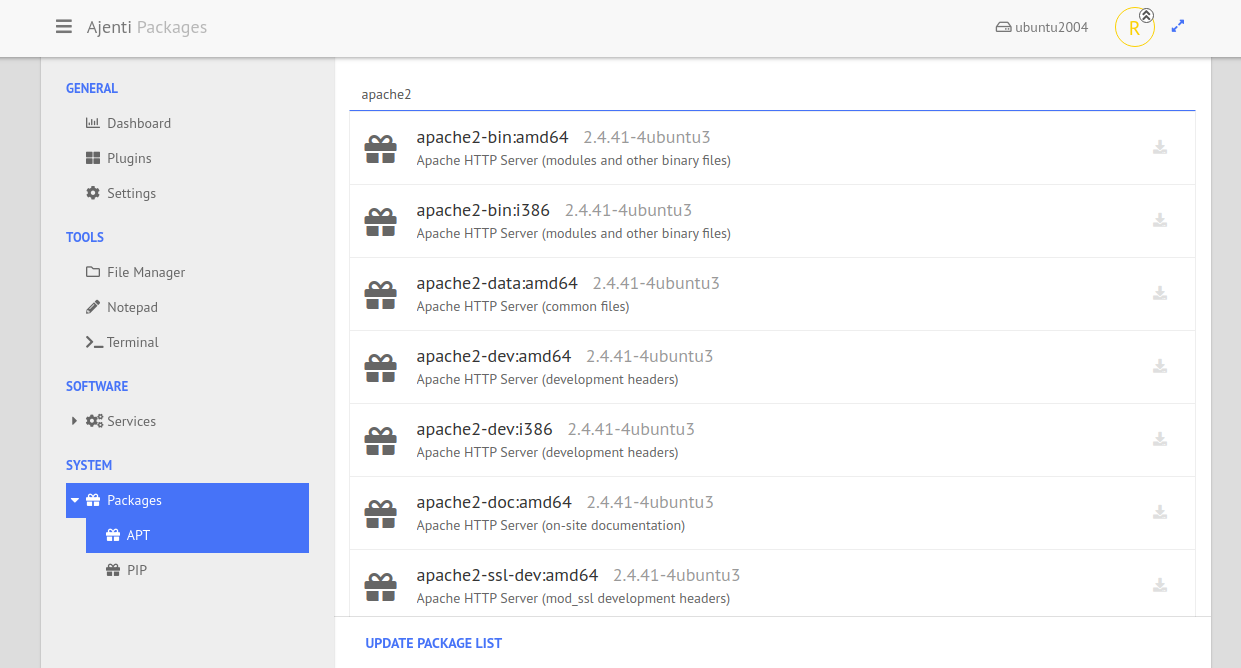
Conclusion
You’ve successfully installed the Ajenti Control Panel on an Ubuntu 20.04 server. Enjoy managing your Linux server effortlessly through a web browser.
Frequently Asked Questions (FAQ)
- What is Ajenti? Ajenti is a free, open-source control panel for managing Linux servers through a web-based interface.
- What are the system requirements for Ajenti? You need a server running Ubuntu 20.04 and a configured root password.
- What port does Ajenti use? By default, Ajenti listens on HTTP port 8000.
- Can Ajenti manage system plugins? Yes, it offers a variety of plugins to enhance functionality.
- How do I start or stop the Ajenti service? Use the commands `systemctl start ajenti` to start and `systemctl stop ajenti` to stop the service.
